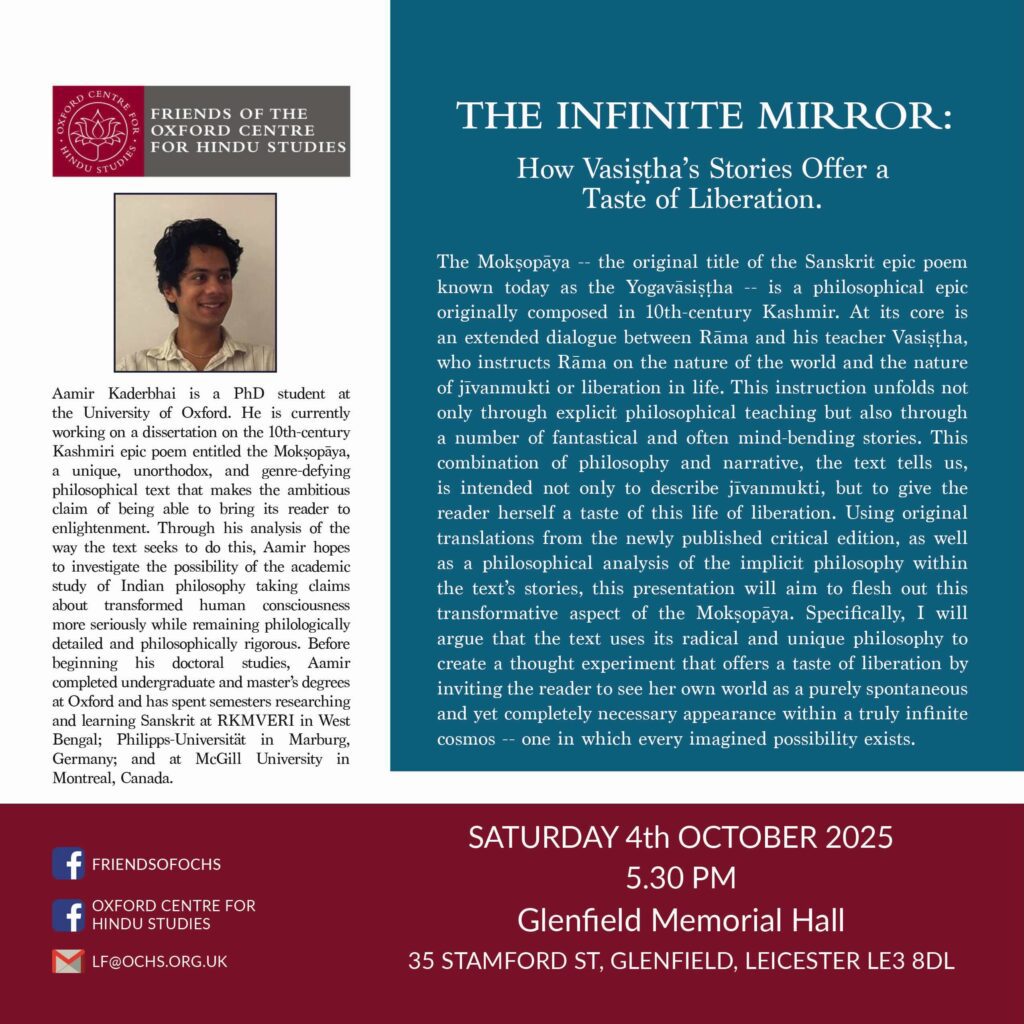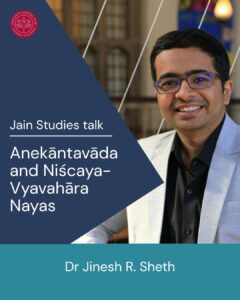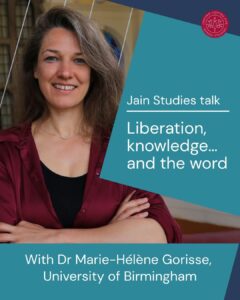OCHS Leicester Friends are pleased to invite you to a talk on “The Infinite Play of Consciousness: Liberation according to Vasiṣṭha” by Aamir Kaderbhai in Glenfield Memorial Hall, Leicester, Saturday 4th October 2025 at 5.30 pm.
About the talk:
The Mokṣopāya — the original title of the Sanskrit epic poem known today as the Yogavāsiṣṭha — is a philosophical epic originally composed in 10th-century Kashmir. At its core is an extended dialogue between Rāma and his teacher Vasiṣṭha, who instructs Rāma on the nature of the world and the nature of jīvanmukti or liberation in life. This instruction unfolds not only through explicit philosophical teaching but also through a number of fantastical and often mind-bending stories. This combination of philosophy and narrative, the text tells us, is intended not only to describe jīvanmukti, but to give the reader herself a taste of this life of liberation. Using original translations from the newly published critical edition, as well as a philosophical analysis of the implicit philosophy within the text’s stories, this presentation will aim to flesh out this transformative aspect of the Mokṣopāya. Specifically, I will argue that the text uses its radical and unique philosophy to create a thought experiment that offers a taste of liberation by inviting the reader to see her own world as a purely spontaneous and yet completely necessary appearance within a truly infinite cosmos — one in which every imagined possibility exists.
Aamir Kaderbhai is a PhD student at the University of Oxford. His interests range from continental philosophy, particularly Nietzsche, Bergson and Deleuze, through to Hindu and Buddhist philosophy and Sanskrit poetic literature. He is currently working on a dissertation on the 10th-century Kashmiri epic poem entitled the Mokṣopāya, a unique, unorthodox, and genre-defying philosophical text that makes the ambitious claim of being able to bring its reader to enlightenment. Through his analysis of the way the text seeks to do this, Aamir hopes to investigate the possibility of the academic study of Indian philosophy taking claims about transformed human consciousness more seriously while remaining philologically detailed and philosophically rigorous. Before beginning his doctoral studies, Aamir completed undergraduate and master’s degrees at Oxford and has spent semesters researching and learning Sanskrit at RKMVERI in West Bengal; Philipps-Universität in Marburg, Germany; and at McGill University in Montreal, Canada.
The talk is FREE and all are welcome.




